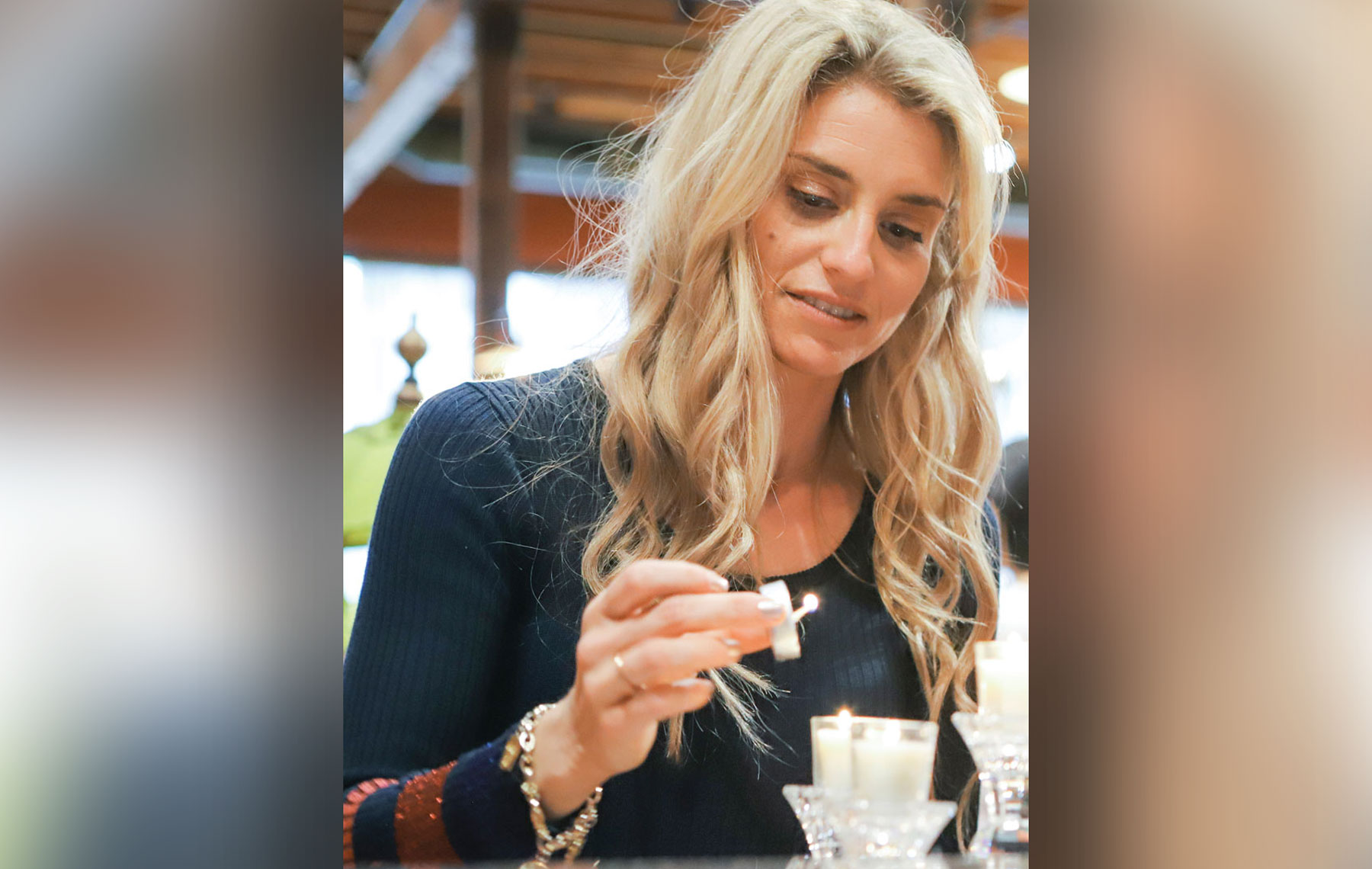 Lara Mizel; Photo by Jonah Light
Lara Mizel; Photo by Jonah Light In whom do you see yourself? A mother? A father? A sibling?
What if an integral part of your identity lies in someone whom you’ve not only lost, but whom you can’t remember?
Lara Mizel was 15 months old when she lost her mother, Shirley, to cancer. Years later, the 39-year-old Angeleno, who was born in South Africa, set out to learn everything she could about her mother from those who knew her best: her family.
For nearly four decades, Mizel’s family had stayed mum about her mother, until she traveled to San Diego; Boca Raton, Fla.; New York City; and Israel to interview relatives and piece together anything that would bring her mother to life, from photographs to home movies and handwritten letters.
The result is a documentary short called “Ohr” (“Light), made by Tikkun Films and produced by Mizel and her husband, Cheston. “Ohr” premiered at the Museum of Tolerance last November and currently is available for rent or purchase at their website.
“To tell you the truth, I wasn’t even sure it was going to be a film when I started on this journey,” Mizel told me. “As things came together, I realized that hers was a story that really needed to be told and that film was a very impactful medium for doing so.”
The film features interviews with Mizel’s father as well as her maternal grandmother, aunt and uncle, all of whom unlocked memories and dusted off photo albums to give Mizel the most precious thing she sought about her mother: information.
“What was really hard was losing the story of my mom. After learning about her, I have her. I found her within me.”— Lara Mizel
Nearly every interview confirmed that Shirley was, above all, an eternal optimist. “I learned that she never once complained or even spoke a negative word, not even in the face of cancer,” Mizel said. Following her diagnosis, Mizel’s mother embraced spirituality and remained hopeful. Mizel, herself an optimist who embraces life, believes she and her mother “both related to God the same way.”
Motherhood helped Mizel, who has four children, realize she needed to fill in the gaps about her mother, but making “Ohr” proved challenging: It forced the otherwise private Mizel to be vulnerable and face the painful truth about how little she knew about the woman who gave her life. It’s Mizel’s vulnerability and curiosity that liberate her from the pain of the unknown.
During one particularly poignant scene, Mizel’s father shows her a video of her mother, young and carefree at a family party in 1970.
“One of the first things I thought was: She stands like me; I stand like her. And it was the first time in my life that I ever saw a woman in whom I could see myself,” Mizel said.
In perhaps the film’s most powerful scene, Mizel learns about a miraculous moment in the trajectory of her mother’s illness that still resonates with the family, long after her passing.
She believes her father didn’t talk about his wife after her death because he wanted to emotionally protect her and her brother, Dan, who was 2 1/2 years old when their mother died.
“I think my parents gave their life for each other,” she said. “My father loved my mother completely courageously.”
What once felt like a closed door that masked darkness now has given way to light, life and, ultimately, redemption. The family is now exploring possibilities for wider distribution, including festivals for short films.
“What I learned from all this was that it wasn’t about losing my mom,” Mizel said. “What was really hard was losing the story of my mom. After learning about her, I have her. I found her within me.”
To know Mizel is to know an amazing woman, and after watching “Ohr,” I felt a need to invite my mother to my home. I wanted to tell her I love her, and for the first time, to pay close attention to how my mother stands.
Tabby Refael is a Los Angeles-based writer and speaker.





















 More news and opinions than at a Shabbat dinner, right in your inbox.
More news and opinions than at a Shabbat dinner, right in your inbox.